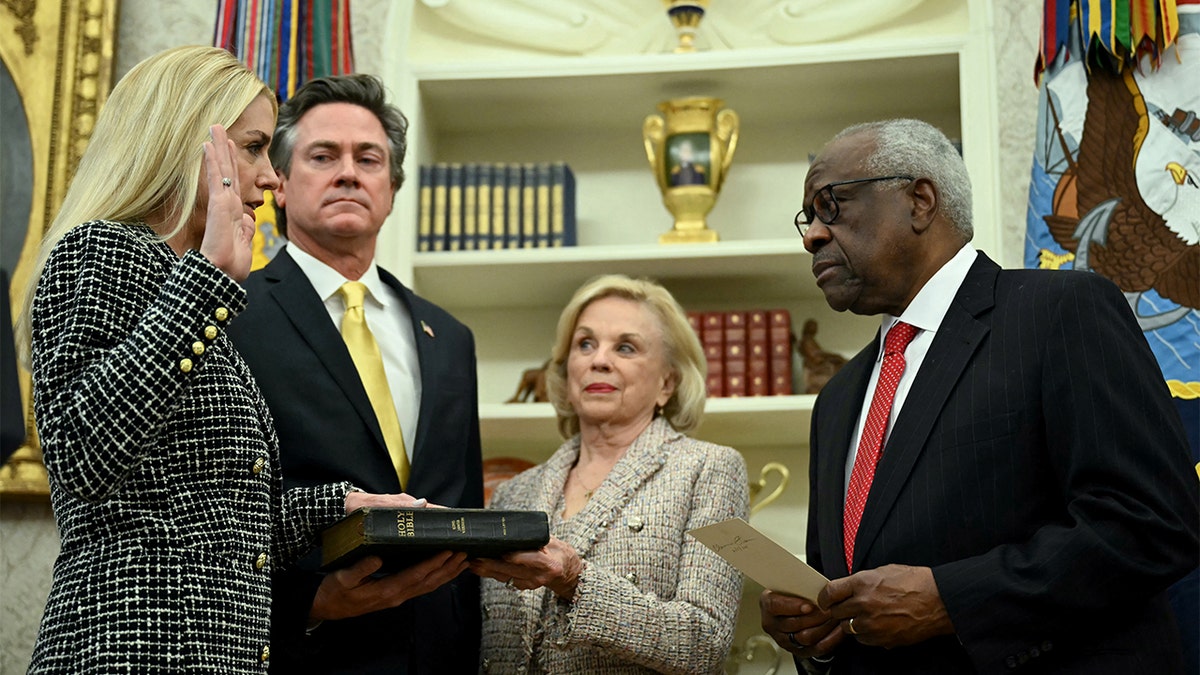While presidential transitions often bring policy adjustments, the recent interim memo from the acting deputy attorney general signifies a substantial shift in the approach to federal prosecution, particularly regarding immigration enforcement. This change marks a departure from previous administrations and warrants closer examination.
Historically, changes in administration have led to debates about the appropriate severity of federal prosecutions. Republican administrations have generally favored a "tough on crime" approach, often advocating for the death penalty and mandatory minimum sentences. This memo aligns with that tradition, emphasizing the importance of targeting cartels, transnational criminal organizations, and reducing violent crime associated with these groups and illegal immigration, particularly focusing on stemming the flow of fentanyl across the border. These priorities mirror those of the previous presidential campaign.

Pam Bondi is sworn in as US Attorney General. (ANDREW CABALLERO-REYNOLDS/AFP via Getty Images)
The memo restricts prosecutorial discretion in plea agreements, limiting leniency to cases with "unusual facts." It specifically highlights the potential use of the death penalty and mandatory minimum sentences for repeat drug and firearm offenders. A significant change is the focus on enforcing immigration laws, including prosecuting illegal entry, a misdemeanor offense. This directive could potentially burden federal prosecutors with a large volume of relatively minor cases.
Traditionally, federal prosecutors have prioritized felony immigration charges, such as illegal re-entry after removal, using these as leverage in investigations or as stronger deterrents. The new memo, however, requires prosecutors to report decisions not to prosecute immigration cases directly to the attorney general, potentially discouraging declinations and giving more power to the Department of Homeland Security.

The memo also directs resources from established drug and gang task forces to support immigration prosecutions, further shifting power towards DHS. Furthermore, U.S. Attorneys' Offices are tasked with investigating instances of resistance to immigration enforcement, potentially targeting "sanctuary" advocates. A newly formed Sanctuary Cities Enforcement Working Group will likely take legal action against local policies that obstruct immigration enforcement.
The memo rescinds previous guidance from Democratic administrations that promoted a more individualized approach to prosecution, emphasizing "sufficient, but not greater than necessary" punishment. This earlier approach allowed for more local autonomy in plea bargaining and consideration of mitigating circumstances. The new directive signals a return to stricter enforcement and less flexibility for prosecutors.
While the memo is presented as interim policy, Attorney General Bondi’s initial actions, such as halting funding for sanctuary cities and investigating organizations supporting illegal immigrants, indicate that this stricter approach to immigration enforcement will continue.
Comments(0)
Top Comments